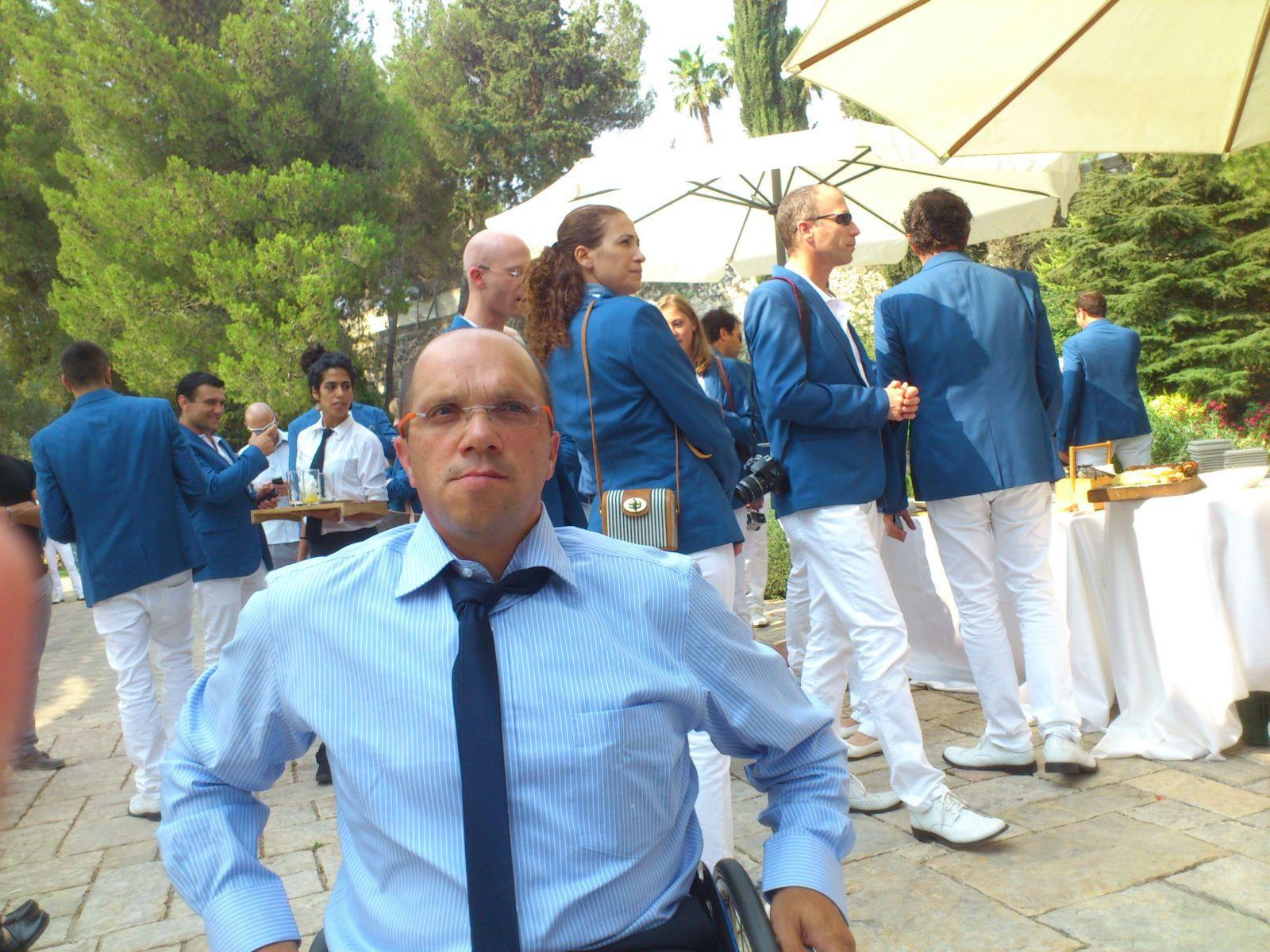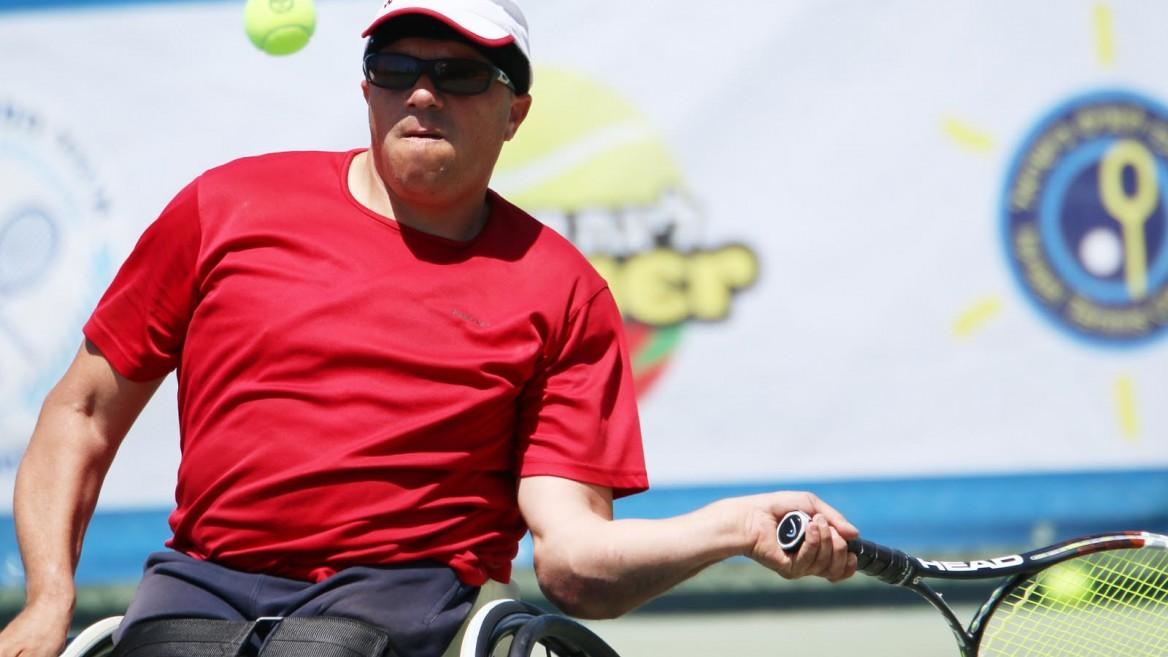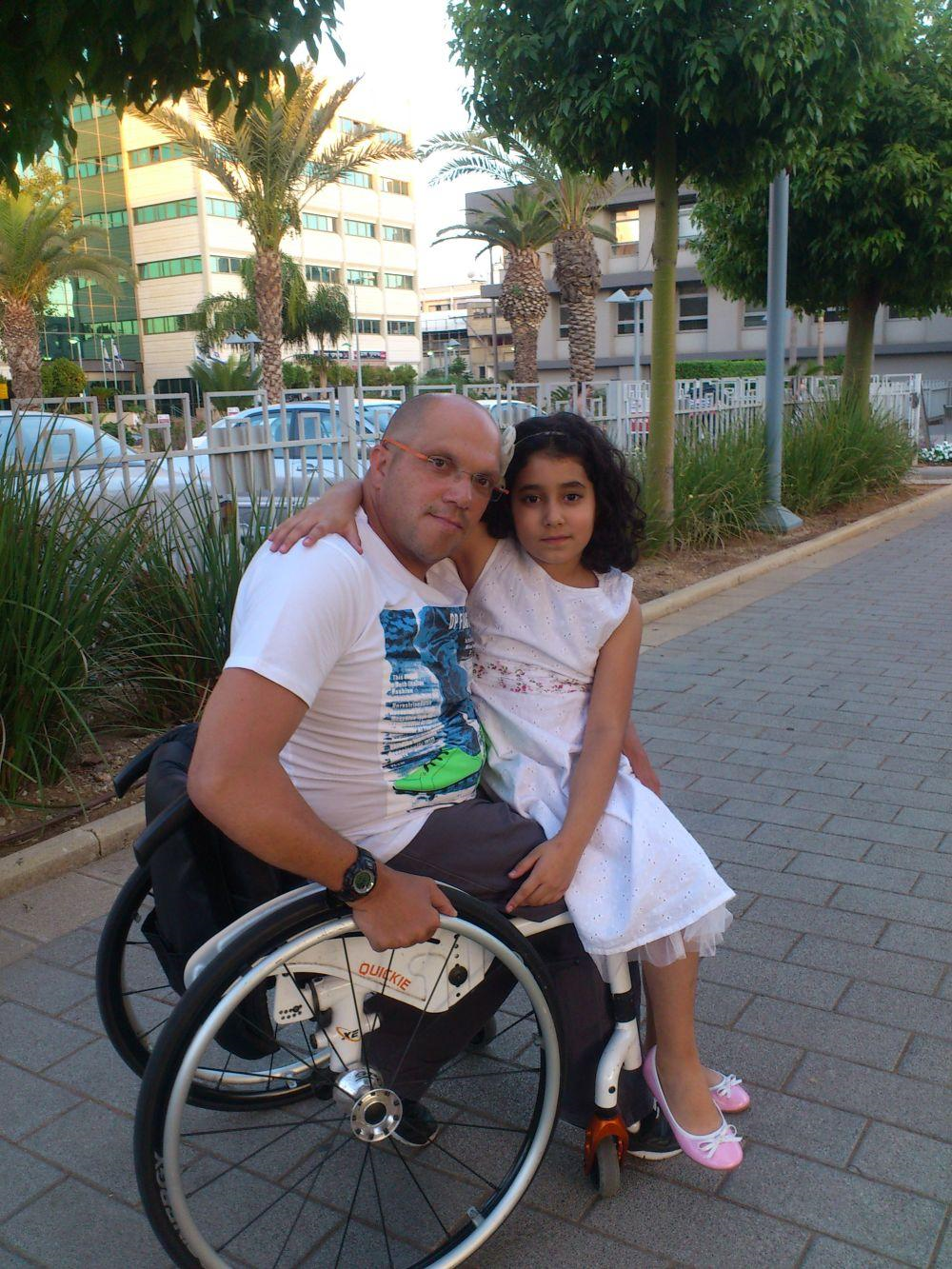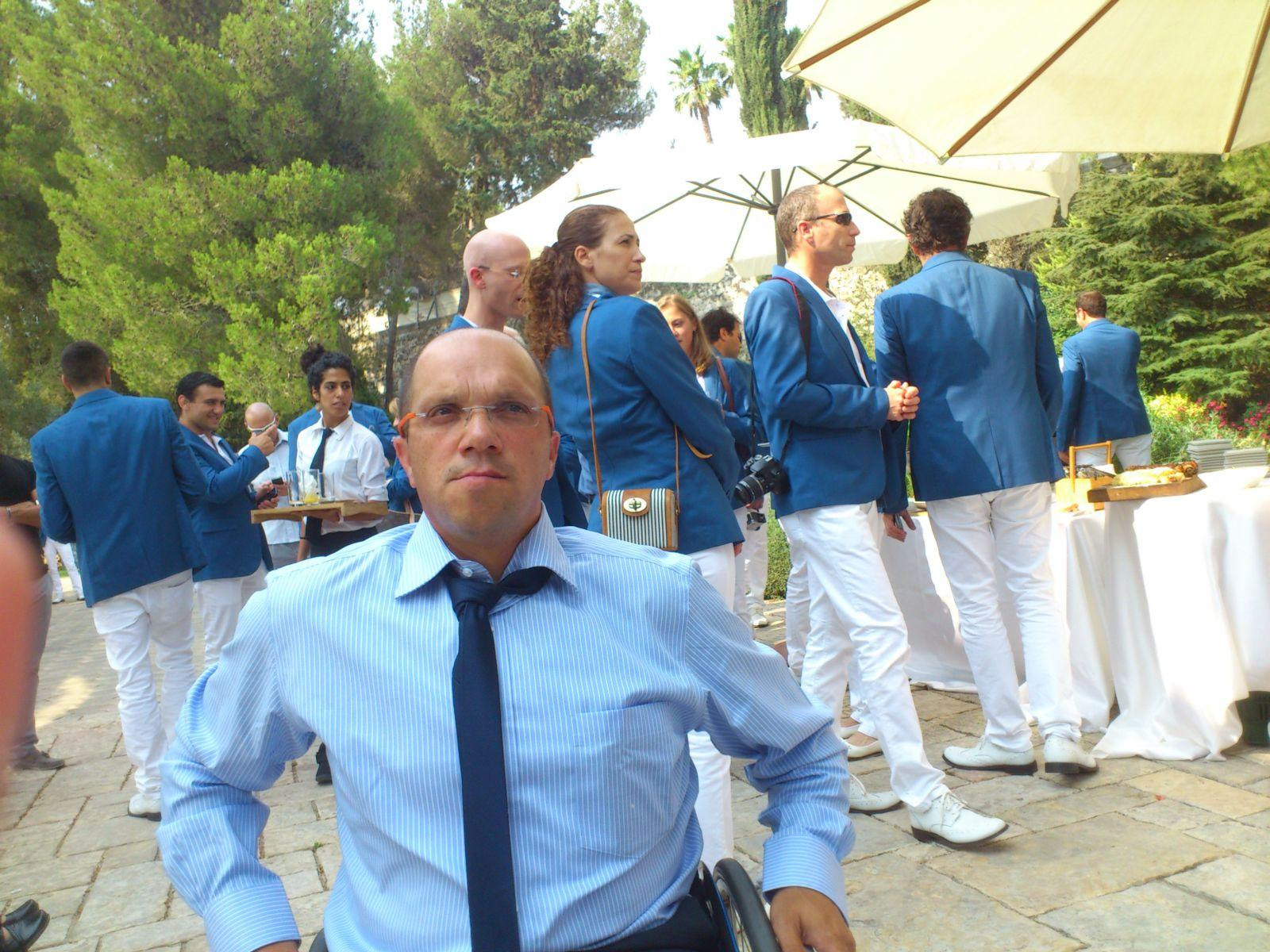
Shraga Weinberg (also spelled “Vainberg”) is proud to be making a fourth appearance at the Paralympic Games and hopes to win another medal for Israel in wheelchair tennis.

“It’s always exciting to go to the Paralympics. This time, there’s an added measure of excitement because I’m the flagbearer,” Weinberg tells ISRAEL21c just weeks before the opening of the Rio Games.

The chance to return to the Paralympics is an honor he doesn’t take lightly. “I am representing the State of Israel, the people of Israel and the entire Paralympic delegation,” he says.
Weinberg’s name is recognized in the world of wheelchair tennis. The left-handed competitor is considered one of the world’s best wheelchair tennis players and holds a silver medal (2008, Beijing, mixed doubles with Boaz Kramer) and a bronze medal (2012, London, quad doubles with Noam Gershony).
In Rio, he and Itay Erenlib, 31, will compete in doubles in the high-disability category (quad).
Weinberg was born with upper-body paralysis and also suffers from lower density abnormalities. He turned to wheelchair tennis to help with his rehabilitation.
His doubles partner, Erenlib, the subject of the film “Slightly, Seriously, Critically Injured,” is a disabled IDF veteran who hung between life and death after a serious injury in 2006.
Approximately 4,300 athletes from more than 160 countries qualified for the Rio 2016 Paralympic Games (September 7-18), according to organizers. The Paralympic tennis event from September 9-16 will be held at the Barra Tennis Center, the same venue used for the Olympic tennis matches.
Weinberg hopes he and Erenlib return with one of the six gold, silver and bronze medals on offer in wheelchair tennis at Rio.
“I have two medals already and I know what it means to have them,” Weinberg tells ISRAEL21c. “In addition to the person-al honor of achieving them, it is an honor for the whole country. I feel this is my chance to win something for all of Israel. Yes, I’m the competitor and it’s still a personal achievement, but I’m representing all of Israel.”
While many athletes are sponsored and can focus all their energies on sports, Weinberg’s position as a serious contender is all the more astounding because he holds a full-time bookkeeping job.
His carefully crafted family, work and sports balance allows Weinberg only four afternoons a week—up to two hours at a time—of tennis practice, and he does not compete in as many international competitions as do some of his peers.
“I don’t want my family or work life to be affected by my tennis practice,” he says. “I want to enjoy all parts of life.”
As Weinberg was one of the last names to be added to the 30-strong Israeli delegation to Rio 2016, there wasn’t enough time to organize tickets for his wife, their daughter and his two stepsons to join his Brazil excursion. Instead, they’ll cheer from home.
While numerous reports have focused on 41-year-old Uzbek Olympic gymnast Oksana Chusovitina because she is double the age of most of her competitors, Weinberg says his age—50 years old—actually gives him a lead.
“I have an advantage over the younger competitors in that I’ve had experience at the Paralympics. I know what to expect at the competition,” he says.
Weinberg notes that in his 20-year career in sports for people with disabilities, the level of competition has gone up dramatically along with the presence of therapists, press photographers and support teams.
As for the future, Weinberg says: “I never make proclamations about what will be.”
Coaching could be on the horizon. “It’s important that a veteran sportsman shows the younger generation what they can achieve and where they can reach,” he says.
Weinberg’s overall message is this: “A disability is just something exterior. The way that you see your disability is the same way the public will see it. If you don’t see your disability as an obstacle, society won’t either.”
By Viva Sarah Press/Israel21c









